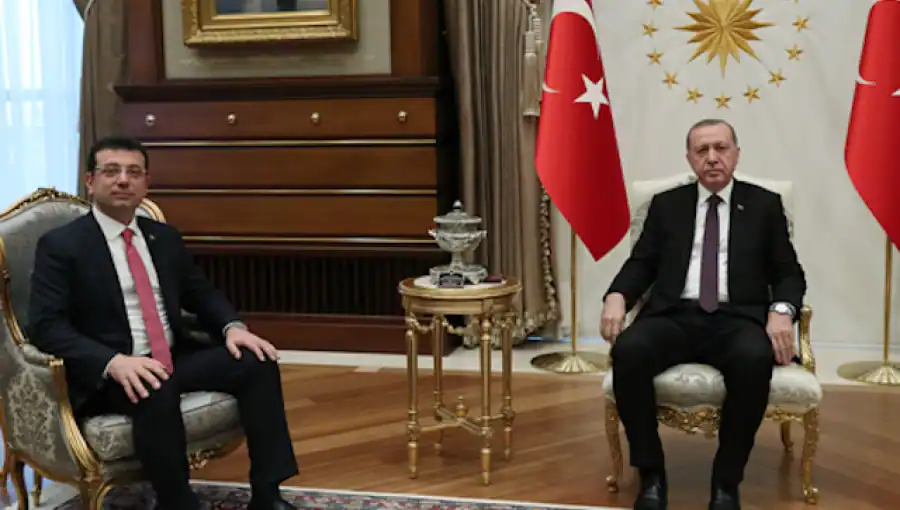The 2023 presidential election in Turkey will be a crucial moment for the country, as it will determine the direction of its politics and policies for years to come. At stake is not only the future of President Erdogan and his ruling party, but also the state of the economy, religion, education, and many other areas of public life in Turkey. Can Erdogan lose the 2023 election?
What factors could lead to Erdogan’s loss in the 2023 election?
Turkey’s economic crisis
For many, it may seem as if President Erdogan has an unbreakable hold on Turkey after nearly two decades in power. However, due to the current economic downturn and internal conflicts within his party, this election marks the first time Erdogan is not the obvious choice.
Erdogan’s policies on interest rates have had negative consequences for the economy, including high inflation, a weakened currency, and decreased investment. Inflation is currently at an annual rate of over 80% and the value of the Turkish lira has decreased significantly compared to the US dollar. The government’s popularity has declined as economic difficulties have increased.
Erdogan’s Justice and Development Party (AKP) has experienced a significant decline in popularity in recent opinion polls. Even with support from the ultra-nationalist Nationalist Movement Party (MHP), which is part of the People’s Alliance with the AKP, Erdogan may have difficulty obtaining the 50% of the vote required to win the presidential elections, according to a research paper published by Berk Esen, Assistant Professor of Political Science at Sabancı University in Turkey.
Turkish opposition alliance

Six opposition parties with diverse beliefs formed a coalition called the Table of Six which can be the most important factor if Erdogan loses in the 2023 election. They agreed to present a joint presidential candidate to compete against Erdogan and to offer a shared platform for restoring parliamentary democracy.
The alliance has pledged to undo several of President Tayyip Erdogan’s policies if they win the May 14th election including reinstating a parliamentary democracy, reversing untraditional economic policies, and implementing a significant change in foreign policy.
According to the recent Al-Monitor/Premise poll (released on December 7, 2022), the opposition alliance in Turkey holds a 4% lead over the ruling coalition led by President Erdogan.
After a long delay and a lot of deliberations, the opposition alliance finally chose Republican People’s Party (CHP) leader Kemal Kilicdaroglu will be their presidential nominee.
However, initially, Kilicdaroglu’s nomination as the opposition candidate faced challenges as the Good Party, the second-largest partner in the alliance, preferred more dynamic candidates like Istanbul Mayor Ekrem Imamoglu or Ankara Mayor Mansur Yavas. However, after a compromise was reached, Kilicdaroglu was supported by the two mayors and it was agreed that the two mayors will serve as the vice presidents in the government.
Read also: Can Kilicdaroglu defeat Erdogan?
In an interview with Al Jazeera, Galip Dalay, a senior fellow at the Middle East Council, shared his views on the upcoming elections in Turkey. Dalay believes that the opposition alliance has a strong chance of winning, regardless of the candidate, if they can replicate their successful collaboration during the 2019 local elections.
According to Dalay, the key to the opposition alliance’s success lies in maintaining internal synergy and harmony. If they can stick together and campaign effectively, they could potentially win the election. Additionally, Dalay noted that the left-wing and pro-Kurdish People’s Democratic Party, which is not a member of the alliance, could indirectly support them.
Who are Imamoglu and Yavas?
Imamoglu is a well-known liberal politician. Prior to his election victory in Istanbul in 2019, Imamoglu served as the mayor of the Beylikduzu district in Istanbul. After his initial win was contested by the AK Party and the election was annulled, Imamoglu won by a wider margin in the subsequent election.
Meanwhile, Yavas, a member of the right-wing CHP, has also made a name for himself in Turkish politics. He served as the mayor of Beypazari, a district in Ankara, for two terms under the Nationalist Movement Party (MHP). Yavas made multiple attempts to become the mayor of Ankara before finally succeeding. It is noteworthy that Aksener, who is now aligned with both Imamoglu and Yavas, was also once a member of the MHP.
Can the People’s Democratic Party (HDP) Make a Difference in the Upcoming Elections?
The People’s Democratic Party (HDP), Turkey’s third-largest political party, secured 11.7% of the vote in the 2018 parliamentary election but is not part of the country’s six-party opposition coalition. Nevertheless, the HDP could play a pivotal role in the upcoming parliamentary election if neither the ruling AKP nor the opposition coalition manages to secure a parliamentary majority, as indicated by polls. In such a scenario, the HDP is likely to support the opposition against President Erdogan. In the 2019 local elections, the HDP’s predominantly Kurdish supporters helped the opposition coalition defeat AKP mayoral candidates in Istanbul, Ankara, and other Turkish cities.
However, President Erdogan’s government has arrested thousands of officials from the pro-Kurdish HDP, accusing them of having links to the banned Kurdistan Workers’ Party (PKK). On January 26, 2023, Turkey’s top court rejected the HDP’s request to delay a final ruling on a case that could result in the party’s closure over alleged ties to militants until after the country’s May elections.
The Earthquake effect
On February 6, 2023, a powerful earthquake struck Southern Turkey, and its aftermath is expected to significantly impact the country’s upcoming elections. President Erdogan, who has been hailed as a ‘master builder’ for his administration’s ambitious infrastructure projects, has seen his image tarnished due to the government’s criticized response to the disaster, which claimed more than 45,000 lives.
The AKP has faced criticism for their alleged practice of granting amnesty to builders and homeowners for code violations, which has led to the construction of less safe structures. This policy has been in place for several years.
Despite acknowledging some shortcomings in the response, Erdogan has defended it and accused his opponents of engaging in negative campaigning. Additionally, there have been concerns about the feasibility of holding elections in the quake-affected area, which is home to millions of people.
Read also: Will Erdogan survive the earthquake?
Although there were signals indicating a possible postponement of the election schedule, Erdogan announced on March 1, 2023, that he is sticking to his original plan of holding the vote on May 14, as scheduled before the earthquake. The opposition parties have also voiced their support for holding the vote as scheduled on May 14. The election was initially brought forward from June 18 citing reasons for “avoiding holidays”.
Erdogan’s bid to retain power
Erdogan is not going to give up power easily and the opposition parties should expect a very divisive campaign. The ruling group already has a lot of resources and uses government agencies to support their political goals.

In December 2020, Ekrem Imamoglu was handed a jail sentence of more than two years and prohibited from holding public office on grounds of “insulting public officials.” The ruling is currently on hold for appeals, but Erdogan may try to speed up the judicial process to prevent Imamoglu from running.
In order to gain support from nationalist voters who oppose him, Erdogan may crack down on Kurdish groups and even ban the pro-Kurdish HDP party, and start a military campaign in Syria to boost his chances of being re-elected.
Erdogan has also initiated a surge of public spending in recent months. This includes offering cheap loans, energy subsidies, tax relief, and reducing the retirement age. As a result, over two million individuals have been able to retire early and receive pensions.
What if Erdogan loses the 2023 election?
According to Ahmet Kuru, Professor of Political Science at San Diego State University, a loss in the 2023 election by Erdogan could lead to a new era of openness and accountability in Turkey. In an article for The Conversation, Kuru argues that many individuals who have been silenced or imprisoned under Erdogan’s rule may be able to speak out again and there could be legal action taken against Erdogan and his allies for alleged abuses and corruption. Additionally, a change in administration could result in a reduction of the powers of the Directorate of Religious Affairs, which controls a large number of mosques in the country and has been a key ally of Erdogan.
On the other hand, according to Ahmet Kuru, if Erdogan is re-elected, it could result in further erosion of the opposition and a continuation of his autocratic rule. Kuru notes that there are already concerns that potential presidential candidates are being targeted, with the popular mayor of Istanbul being sentenced to prison in December. This could discourage other opposition figures from running and could also contribute to the “brain drain” of well-educated professionals, such as doctors, academics, and businesspeople, leaving the country for more stable and open societies.
While the opposition alliance has a decent chance of defeating Erdogan’s ruling bloc, their victory would not guarantee a smooth transition to parliamentary democracy.
If the opposition is able to defeat Erdogan, the new government will face the difficult tasks of establishing a merit-based bureaucracy, restructuring Turkey’s diplomatic course and economic policy, and returning to a parliamentary system. This may be challenging due to the diverse composition of the opposition alliance.
Conclusion
Overall, the 2023 presidential election in Turkey will be a historic moment that will shape the country’s future for years to come. Whether Erdogan is re-elected or the opposition triumphs, the outcome will have far-reaching consequences for the nation.








I sure hope this evil man will lose the election otherwise Turkey is gonna be nothing but a backward religious dump